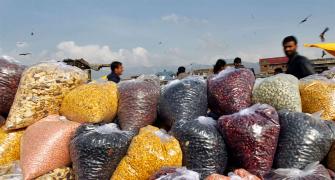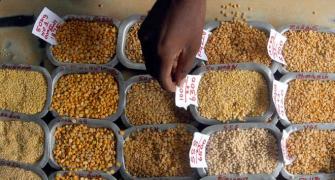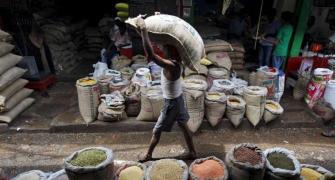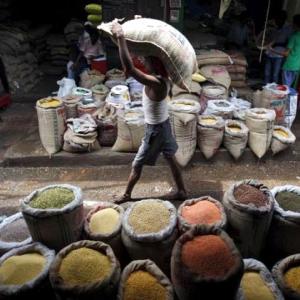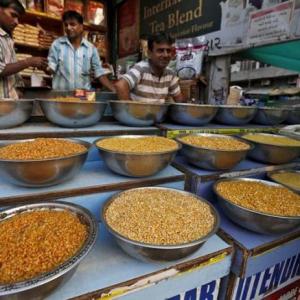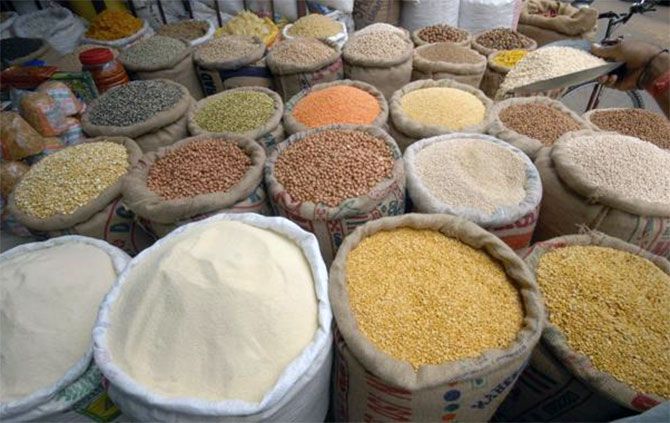
Prices of pulses have started falling quickly in the domestic market and the international market is also looking weak
The Centre is looking at expediting sale of pulses or make arrangements for scientific storage of them -- for which hunt is on for an agency -- as demand for cheap pulses is poised to go down in the coming weeks due to rise in local supplies.
Government officials said unless this is done, the government would be saddled with huge unsold inventory, as states so far have been very reluctant to sell cheap pulses provided by the Centre despite its best efforts in convincing them.
A third alternative could be to explore other options for liquidating the stock.
But, all these have to be done quickly, as prices of pulses have started falling quickly in the domestic market and the international market is also looking weak in the coming months due to a bumper harvest.
Already, officials said two e-tenders to sell pulses floated by the government had to be cancelled as the price offered was much lower than what has been incurred by the Centre.
In the case of domestically purchased pulses, officials said the Centre purchased them at around Rs 76 a kg (unmilled), while the price quoted in the e-tender was around Rs 60-65 a kg.
For internationally imported pulses, the price quoted in e-tenders was around the same, while the purchase price was higher, at Rs 104 a kg.
With such low prices being quoted, the Centre was left with no other option but to abandon the tenders.
Direct sale to states too hasn’t picked up and till date the Centre has allocated 29,000 tonnes of pulses to states, of which just around 5,000 have been lifted by them.
The Centre had built a huge buffer stock -- of more than 205,471 tonnes -- through domestic purchase and imports, but its liquidation has been slow.
It needs to quicken up the process as going forward it might find it more difficult to sell the pulses, because already, because of a bumper harvest, the retail price of moong dal has dropped by 3.79 per cent, while that of urad dal has come down by 6.1 per cent.
Arhar and masur dal has become cheaper by 5.14 per cent and 0.75 per cent respectively in the same period.
The situation doesn’t look too conducive.
In fact, an analysis shared with the Centre recently pointed towards the fact that retail price of tur, urad, moong might fall below their minimum support price of Rs 5,050 per quintal, Rs 5,000 per quintal and Rs 5,225 per quintal respectively in the coming weeks, a process which has started already.
In the global markets, too, pulses prices have slumped because of a bumper harvest.
Traders said chana production in Australia is estimated to be 0.6 million tonnes more this year, compared with last year, while tur rates in Myanmar and Africa have gone down to $500-600 a tonne.
India’s pulses production slumped to around 16-17 million tonnes in 2014-15 and 2015-16 against a requirement of around 23 million tonnes, mainly due to back-to back droughts.
This had pushed up prices to over Rs 200 a kg, keeping overall retail inflation at an elevated level.
A worried government had initiated a series of measures to boost supply of pulses, both in the short term and long term, which included creation of buffer stock of 2 million tonnes, checks on hoarding and black-marketing of pulses, significant increases in MSP to encourage farmers etc.


